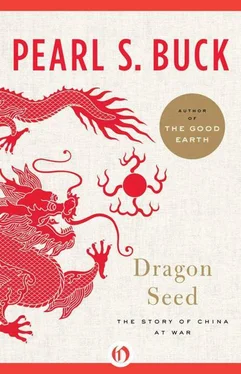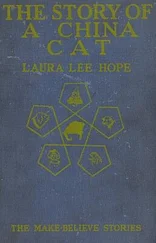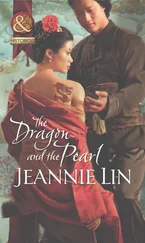“I am too bold and I know my little worth, but still I have often delivered women of their children and it may be that I can be of use here. Else why did Heaven send me to a house I have never seen before, and did not Heaven put my feet on the wrong road for some purpose, so that I am miles from where I thought I was, and fell into your son’s trap and could not climb out until he saved me?”
“Come with me,” Ling Sao cried, not understanding any of this except what she needed. She took that woman by the wrist and pulled her to Jade’s bedside, and she said to Jade, “Here is one sent by Heaven to help you, child, and let us all take heart.”
Then that woman pushed up her sleeves and she smiled at Jade and she put up Jade’s garments and she began to knead her belly and her loins. Whether a new face gave Jade courage, or whether the kneading eased her for a moment, it was sure she felt better and she took heart and tried again. And that woman had great patience and she coaxed Jade with her words, and kept on at her work, and all waited to see what would happen.
“The child has moved a little,” Jade gasped at last, and fell into fresh agony. At this the woman thrust her hand and arm up into Jade’s body and cried out:
“I feel a boy’s head!”
At that all took new courage, and Ling Sao urged Jade that since it was a boy she must go on. Now the woman pulled gently with her hand and Jade pushed, and that unwilling child had nothing for it but to yield, though hardly. So after about two hours more, he was born. Then Ling Sao seized the child.
But the woman looked at Jade and cried, “There is another one.”
And then she fell hard to work again and in a few moments more another child was born upon a great gush of Jade’s bright blood.
“O Heaven’s mercy!” Ling Sao cried, and reached out her arm for this second boy. And such boys they were that they both cried as lustily as though they had been born a week.
Who now could doubt that Heaven had sent this woman?
“You must eat and rest and calm yourself, and be sure I will thank you in any way you want,” Ling Sao said.
She gave the children to those women who waited, and as proud as though she had done the thing herself, she went into the kitchen to make ready for Jade the red sugar melted into boiling water that would renew her strength, and she called her second son to take it in and tell Jade how well she had done.
But while she did this she thought secretly, “This woman — she is too old for my son, and yet how can I refuse her now? But how will it be to me to have so old a daughter-in-law?”
And when Lao Er had gone with the sugar drink, she called her husband to her to talk with him so that she could know how she was to behave to this woman, whether as daughter-in-law or as a stranger. Now Lao Ta had already told his father what he wanted and so Ling Tan was ready, and he knew his mind.
“Heaven plays us tricks these days,” Ling Sao said, feeding the fire as she talked, to heat food for the woman. “I swear I could never think that I would get women like this out of the air for my sons. These are no proper times.”
“Nevertheless, how can we refuse our eldest son now?” he asked her.
At this she saw that he was willing, and so she only put one barrier up. “If she is too old for childbearing then he cannot have her. What is the use of a woman in the house if she cannot have a child?”
“She has been useful today,” he said.
“But today is not every day,” she said. “Not once in the life time of a few is such a day as this.”
And she would have her way, and so when she took food to the woman she asked her age in all courtesy as one must ask a stranger, and that woman said half sadly, “Well I know I am too old. I am thirty-six.”
And Ling Sao thought to herself, though she liked the woman’s honesty, that indeed it was very old, but still the woman might bear three or four children in time if she were fertile. So she put another courteous question, and she said:
“Have you any children?”
At that the woman began to weep and she said, “I did have children, for I ever bore them easily, but I lost them all — five of them together in battle from the flying ships. Only I and my husband lived and then he lost himself, too, in a soldier’s battle, for he was taken into the army. He was a cobbler by trade and his trade kept him out on the streets and he could not stay at home and hide, as some men can. When word came down from those above that from our district a thousand men must be sent to make the army in the free land, where we lived, he was easily taken, for he was strong and his legs were hearty from his long walking with his load. He did not come home for many days and I feared he had been taken. Somehow he sent me word of where he was, and then I went near to him. But I never saw him, for there were many thousand soldiers there, and before I found him I heard he was dead.”
“What bitterness!” Ling Sao murmured and at that moment from pity she yielded to her eldest son, and took what Heaven had sent.
THUS LING TAN’S HOUSE was full again, and with yet no abatement of hardship from the enemy’s rule, his life went on. So far as he could see there was no hope of abatement. He bore as all others did the cruelest taxes and the most unjust greed and every spring as far ahead as he could see there was the battle of opium to fight with the enemy. And in this battle the enemy was now the victor. Opium in these days sold in the city for twenty-one silver dollars for an ounce, and a dollar a day was enough for a man, if he did not buy food, and more and more were those who chose opium rather than food. Opium lamps and pipes were sold openly on the streets, a thing never heard of since ancient times, and the enemy put a tax on every lamp and every pipe and prospered upon the weakness of those who were desperate. But among the enemy opium was forbidden. And there were few shops for cloth or silk, for the enemy took all such goods, and all the factories for the making of silk were in enemy hands, and flour belonged to the enemy still, and fish and rice and cement.
Seeing how robbed the people were and how the enemy took away to their own country all the goods in houses and shops, and iron of every sort, even nails and locks and knives and forks and hoes and spades, and any metal thing not hidden, Ling Tan thought bitterly, many a day: “The earth is the one thing they cannot take back to that cursed country of theirs.” And yet as though the earth itself rebelled, the harvests shrank to half what they had once been.
And again he said, “This enemy, they did not declare war, but they made war upon us. Now they declare peace, but they cannot make it.”
And he hated them the more because he who all his life until now had been a proud and free man had to compel himself to silence before this enemy, and before the smallest and the weakest and the most evil of these little crooked-legged men he had to listen and to say nothing. This he could only do because there was the land and he was still faithful to it.
But there were times when his gorge rose in him and then he could not eat, and nothing made him better, not his wife’s coaxing nor the sight of grandchildren, nor anything that he had.
“If I must meet that enemy one more time upon my land it will be too much,” he told his wife, and she said nothing for once, because he could not be comforted. There was no comfort. “If I had so much as a seed of hope,” he said again, “if I saw an end, however far away, that one day we could rise up and push the enemy into the sea! But all we do is to endure, and can victory be won only by endurance?”
And again Ling Sao could answer nothing. These were the times that she dreaded, for when Ling Tan was downcast, the whole house was dark with his gloom, and even his sons could do nothing against it.
Читать дальше












